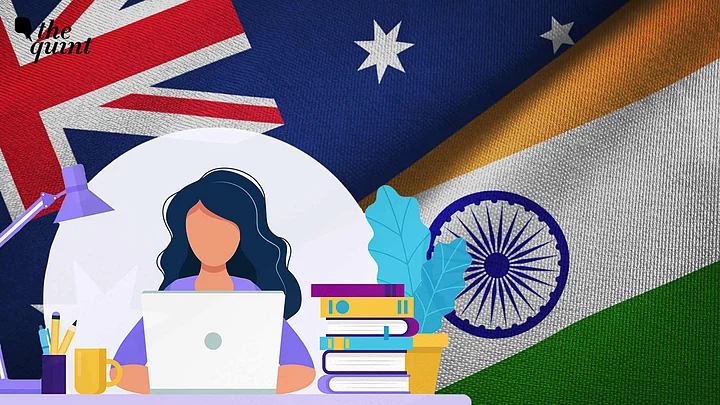The Melbourne-based Australia India Institute (AII) is embroiled in a controversy after 14 academics from universities all over the country resigned over what they say is the AII's refusal to engage with any criticism of the ruling government in India.
The AII was established in 2008 at the University of Melbourne, in order to "engage and gain a greater understanding of the two countries through various streams of academic research".
Thirteen affiliated academics, however, in a letter to the University of Melbourne's Vice Chancellor, accused the AII of promoting the Indian government's "propaganda," and of overlooking the "marginalisation of the Indian minority".
All of them, along with another fellow, eventually quit their affiliation.
To better understand the controversy, The Quint contacted Dr Mridula Nath Chakraborty, Senior Lecturer, the Monash Intercultural Lab (MIL) at Monash University; and Dr Priya Chacko, Senior Lecturer, International Politics, the School of Social Sciences at the University of Adelaide.
They are two of the 14 academics who resigned from the AII.
Could you please briefly tell us why you resigned, and what was the essay and the podcast that the AII "declined" to publish/upload?
We resigned because the AII’s mission has been narrowed to focus on promoting government agendas and bilateral relations and we are doubtful that this mission is compatible with the university’s mission to protect academic freedom and research autonomy.
The essay was one on Gandhi's casteism and racism and the podcast was on caste and the corporation.
Does the AII have a history of censoring content that is sensitive or critical of the current establishment? Or is this the first time that this is happening?
Restrictions on academic freedom is a problem increasingly experienced across many academic institutions in Australia and elsewhere.
In Australia, this is the result of universities increasingly becoming corporatised and concerned with reputational damage and dependent on external income from industry and international students as government funding has been cut.
So, in that sense, the issue here is larger than that of just the AII.
Was there any role played by the Indian High Commission in this controversy? If yes, what was the role? If no, do you think the AII came under external pressure from the Commission?
Academics are usually not in the business of being in direct contact with high commissions or embassies. Our job is to teach and produce scholarly work.
However, increasingly, situations have arisen where high commissions and consulates are invoked and deployed to vet open speech or restrict participation in public events.
Moreover, when university spaces are used to host and showcase governmental officials with a specific mandate on the one hand, and limit access to critique arising from evidence-based scholarship on the other, then one has to think seriously about the role of governmental interference at a structural and systemic level.
What is the role of the AII’s CEO, Lisa Singh, in all of this? What is the controversy regarding her selection as the person to lead the institute, and why is she a contentious figure?
This is not about individuals but processes. In our letter we raised concerns about the apparent lack of process used to appoint Lisa Singh.
Having said that, it was disappointing to hear Lisa Singh assert in a recent Ear to Asia podcast that she believes the Indian government is committed to dealing with human rights abuses in India.
It is well established that Indian government officials are enabling the persecution of Muslims and other minorities through its policies and rhetoric. It is this type of whitewashing and intellectual dishonesty we are concerned about.
Are you expecting or inviting any sort of intervention from the Australian government or from any subordinate authority regarding the matter?
We have asked the University of Melbourne to conduct an enquiry into the governance and functioning of the AII and to ensure the AII protects the academic freedom and research autonomy of its staff and fellows.
The Australian government often asserts that India is a like-minded liberal democracy.
If this is the case, we'd suggest that both governments display a commitment to protecting the liberal right of academic freedom in India and Australia.
Is academic freedom going down in Australia, or is this an isolated case? And do diaspora members of other countries face similar issues in academia, or is this specific to the Indian diaspora?
Academics all around the world are facing serious attacks on their scholarship that raises questions about human rights, freedom of speech, and just plain investigative and analytical work that draws attention to continuing atrocities and inequities in society, especially when these challenges established hierarchies and power structures.
Diasporas often become tied to specific agendas of their countries of origin and these can be fraught negotiations that become acute at times of social flux and political upheaval.
As elsewhere, segments of the Indian diaspora in Australia at the moment are exhibiting particularly concerning chauvinistic attitudes and mirroring the kind of discriminatory language and support for fundamentalist behaviour that we see escalating in India.
The highly-organised forces of Hindutva are as active in the diaspora as they are in India and this has far-reaching consequences for the Indian diaspora around the world on issues concerning freedom of speech and the treatment of minorities.
